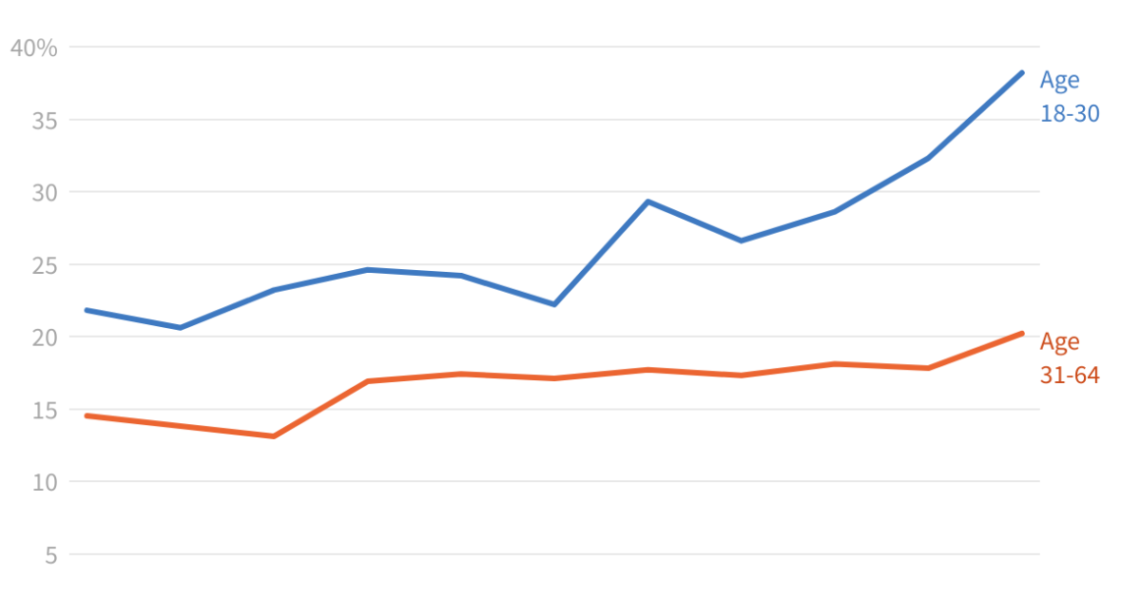Young adults aren’t behaving the way their parents did: They’re not drinking as much, they’re facing more mental health challenges, and they’re living with their parents longer. On top of that, computer games and social media have become a sort of stand-in for physical relationships.
All that means young Californians aren’t having as much sex.
The number of young adults going without sex was rising even before covid-19 made dating harder and riskier. In 2011, about 22% of Californians ages 18 to 30 reported having no sexual partners in the prior 12 months. That crept up to 29% in 2019, and it jumped to 38% in 2021, according to the latest figures from UCLA’s California Health Interview Survey.
Other age groups in California also reported an increase in abstinence, but the trend was not nearly as pronounced.
“Everything happens later,” said San Diego State University psychology professor Jean Twenge, author of “Generations: The Real Differences Between Gen Z, Millennials, Gen X, Boomers, and Silents — And What They Mean for America’s Future.” She said the numbers reflect how young adults increasingly delay major life events, such as moving out of their parents’ homes and forging long-term romantic relationships.
Singles saw the most dramatic change.
It has long been the case that single people are more likely to report having no sex than married or cohabiting people. But as young adults delay marriage, the gap has widened.
Young adults may be putting off long-term relationships “due to their increasingly economically precarious status or stress related to completing education and looking for jobs,” said Lei Lei, a sociology professor at Rutgers who recently co-authored a paper that examined why fewer young…
Read the full article here







